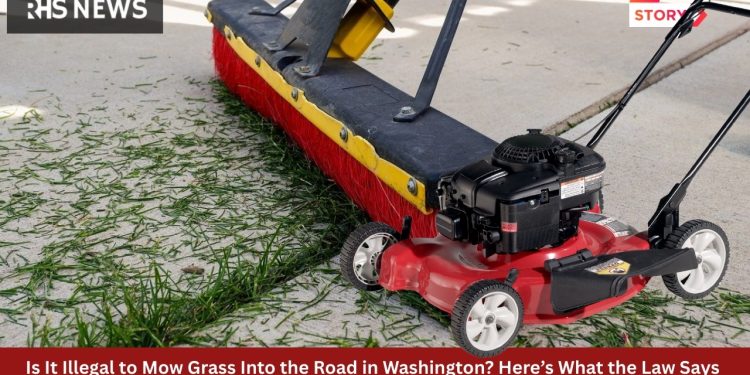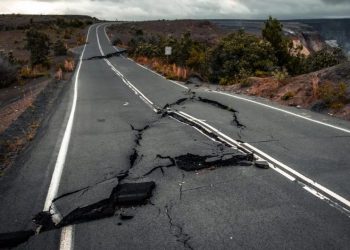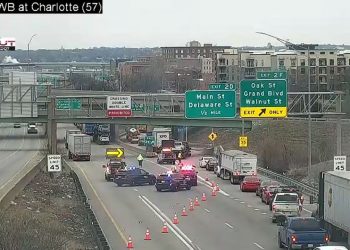Every summer, Washington’s neighborhoods burst into life as residents fire up lawnmowers to keep their yards tidy and green. However, a common yet overlooked practice has sparked debates in Seattle, Spokane, Tacoma, Bellevue, and other cities: Is it illegal to discharge grass clippings onto the road? Beyond aesthetics, this question has significant environmental, legal, and safety implications—especially for motorcyclists and municipal safety.
The Laws That Govern Grass Clippings on Roads
This Article Includes
Statewide Regulations
Grass clippings strewn onto streets may seem harmless, but in cities like Seattle and Vancouver, such litter can cause more than inconvenience. Wet or dry grass clippings create slippery patches on pavement, which can be especially dangerous for motorcyclists, sometimes comparable to hitting black ice. Beyond safety concerns, the environmental toll includes blocked storm drains and nutrient-polluted runoff into rivers and lakes.
While Washington state does not have a law that explicitly mentions grass clippings in its traffic statutes, it is illegal under broader littering and green waste regulations to deposit any solid waste, yard waste, or debris—including grass clippings—onto public roads. Washington’s littering provisions penalize individuals who throw, dump, or deposit waste onto any public roadway. These statutes encompass yard waste, as well as trash, cigarette butts, and other debris.
-
The relevant law prohibits dumping green waste in natural places like forests, rivers, and streets. While the statute may not spell out the words “grass clippings,” legal experts and municipal understanding generally interpret green waste to include them.
-
Fines for littering in Washington range from $103 up to $5,000, depending on the quantity and nature of the debris. Municipal codes also allow for additional penalties if the dropped waste causes an accident or damages property.
City Ordinances
Seattle and Bellevue enforce other local ordinances regarding yard waste. Residents are instructed not to dispose of grass or leaves into their regular garbage or onto streets. Instead, neighborhoods are equipped with special food and yard waste bins to ensure proper composting and disposal.
In Spokane and Tacoma, city street maintenance departments regularly issue reminders during mowing season: Do not blow grass onto the road. Fines, warnings, and potential liability claims can follow if an accident or blockage occurs due to grass clippings.
Liability Instead of Explicit Criminality
While some cities have clear ordinances, statewide regulations often come into play through liability. If motorcyclists, cyclists, or motorists suffer an accident because of grass clippings on the road, the person responsible for the debris may be held liable. Legal experts point out that homeowners and contractors can face lawsuits for negligence and damages, particularly if clippings are proven to contribute to hazardous roadway conditions.
Dangers for Washington’s Motorcyclists
Motorcyclists in Washington face significant risks from grass clippings on streets. Slippery conditions created by freshly cut grass have contributed to numerous accidents in Bellingham, Everett, and Olympia. Grass clippings, with a water content of up to 85%, can make backroads through Redmond or Vancouver unexpectedly hazardous. Riders report sudden loss of traction as tires slide across the grass, often resulting in falls or collisions.
Local motorcycle safety advocacy groups have campaigned for more explicit signage and regulations to make homeowners aware of these risks. As a result, cities have ramped up public education and local enforcement.
Penalties and Enforcement
State Penalties
Washington’s littering laws define an escalating scale of fines:
-
Small amounts of litter: $103
-
Larger debris (up to 1 cubic yard): $500
-
Dangerous litter (items causing accidents): over $1,000, plus possible jail time
Deposit of debris onto highways or streets—regardless of intent—can trigger citations and fines. For instance, failing to secure loads of yard waste on trucks can result in $231 citations, with larger fines if property damage or injuries result.
Local Penalties
Seattle, Spokane, and Tacoma have stepped up local enforcement in recent years. Neighborhood watch programs in Bellevue and Redmond encourage residents to report violations, while city waste contracts specify that landscaping companies must bag clippings and avoid blowing them onto streets. Repeat offenders, whether homeowners or contractors, may receive escalating fines and face restitution for property damage.
What Homeowners and Lawn Care Companies Should Do
-
Direct your mower’s expulsion chute away from the road. This simple adjustment can prevent most clippings from ending up on pavement.
-
Use a mulch setting or bag attachment. Modern mowers in Everett, Bellevue, and Kent often come equipped with mulching settings or bagging attachments. This helps recycle nutrients into your lawn and keeps the street clear.
-
Collect and compost clippings. Cities like Seattle and Vancouver provide curbside composting bins for food and yard waste.
Tips to Avoid Legal Trouble
If you’re mowing your lawn in cities such as Tacoma, Spokane, Renton, or Vancouver:
-
Stay aware of where your clippings land. Make adjustments as necessary.
-
If you hire a lawn care service, confirm their methods meet city compliance standards.
-
In case of accidental discharge onto the street, promptly sweep up the clippings.
-
Consult your city’s Department of Ecology website for updates, or contact local code enforcement for details about changing regulations.
Conclusion
Mowing grass is a routine chore, but where your clippings end up can bring steep fines, lawsuits, environmental harm, and serious dangers—especially for motorcyclists in Washington. While statewide law does not always use the words “grass clippings,” it does penalize improper disposal of yard waste and defines it as litter under the law.
Seattle, Spokane, Tacoma, Bellevue, and other cities enforce these rules strictly. Fines can run from $103 into the thousands, and liability extends to accidents and property damage caused by improperly disposed yard waste.
For Washington residents and landscaping companies, the message is clear: direct your clippings away from the road, use proper disposal methods such as bagging and composting, and watch for local ordinances. The effort spent today could spare you legal headaches, environmental trouble, and safety concerns in the future.










